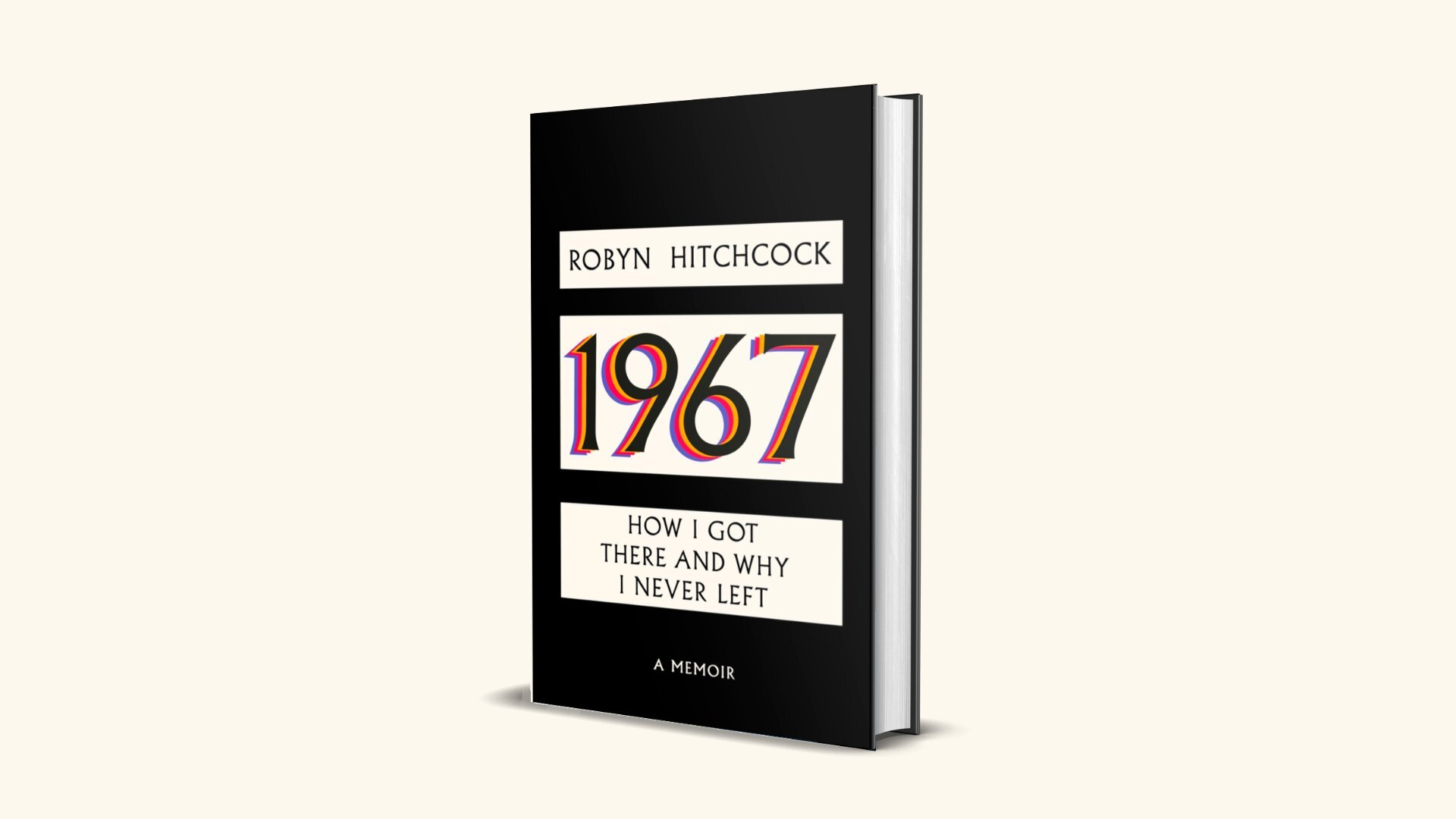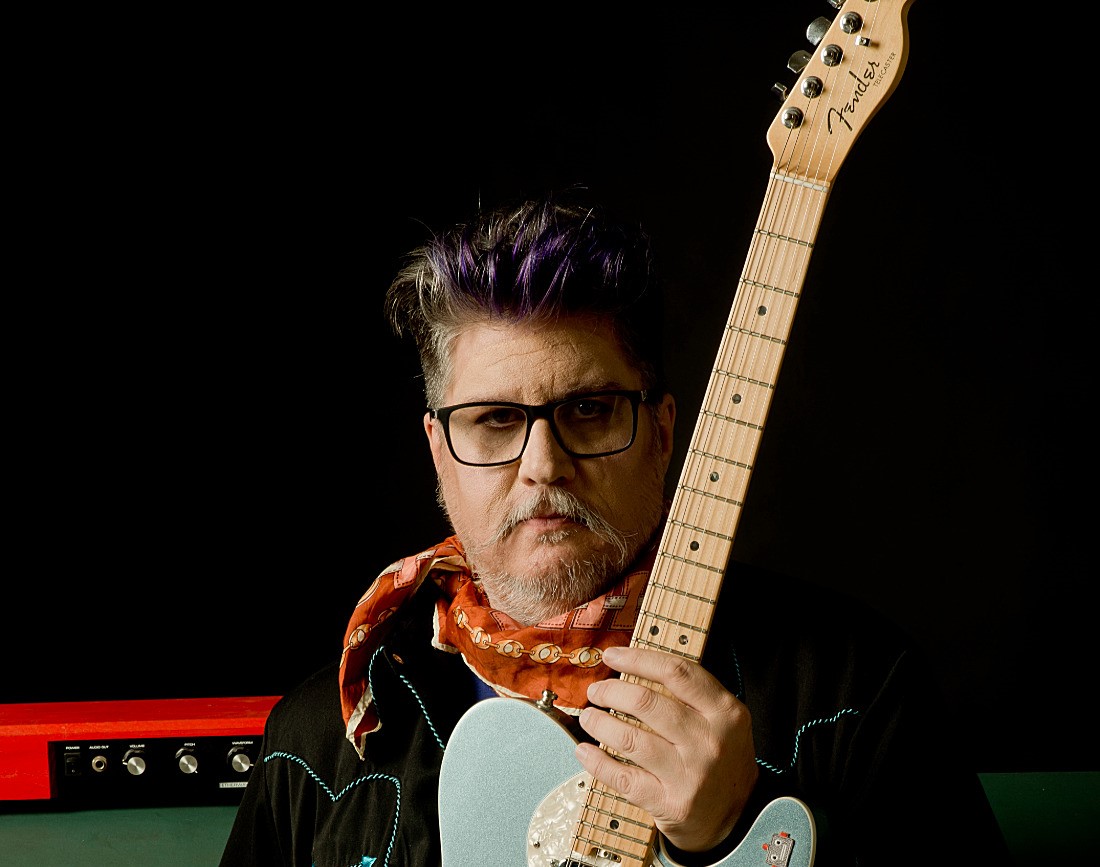1967: How I Got There and Why I Never Left by Robyn Hitchcock
Robyn Hitchcock’s song lyrics are often jarringly surreal, startling listeners with their absurdist observations. And so, it should be no surprise to those familiar with his music that he would take the unexpected step of writing a memoir that focuses on just one year of his life.
Hitchcock turned 14 in 1967. He spent much of that year at a college preparatory boarding school not far from his family’s home in southern England. In this short book, he looks back on that year, utilizing his customary stream-of-consciousness wit to investigate how his time away at school, his familial relations, and his discovery of the shape-shifting music of the time all informed his adolescent experience and guided him in the direction of the adult we have come to know through his records and his public personality.
The least engaging segments of the book are about Hitchcock’s life at the boarding school. The anecdotes about the other students, the staff and administrators, his own experiences there … none of that is particularly enlightening or entertaining. Maybe such a learning institution in that part of England in 1967 was a dreary place to be, and Hitchcock meant to capture that dullness when reflecting about his timeat the place. But if so, why write about it?
The read gets livelier when Hitchcock writes about his musical awakening at the time. As he discusses having his young mind blown when hearing songs like ‘Waterloo Sunset,’ ‘Strawberry Fields Forever,’ ‘Purple Haze,’ etc. for the first time, it makes one wish they could have been a teenager as those heady sounds got introduced to the world. And when he tells of being turned on to the ‘Arnold Layne’ 45, we can clearly see the wheels turning in the head of the future surrealist songwriter who will be so often compared to Syd Barrett. Equally enthralling are the parts in the book about a young Brian Eno, who was at a neighboring school and who sometimes treated Hitchcock and others to ‘Happenings’ that were something like performance art events that foreshadowed Eno’s later work witb treated music and with his oblique strategies cards.
In 1967, Hitchcock also writes a lot about his family. Here he shines a light on English manners, showing the dichotomy of having parents who weren’t comfortable expressing emotions yet who were artistically attuned (his father made paintings that were meant to illustrate his nightmares and his mother turned him on to literary giants like William Faulkner and Virginia Woolf). Hitchcock’s telling of his family dynamics does more to show the reader how this time in his life molded his young self than do the passages concerning his experiences at the boarding school.
Along the way between the covers of the book, Hitchcock muses on matters such as social constructs that guided people’s behaviors at the time, and he investigates the function of memory as he reflects back on this year in his life. But, again, the strongest parts of the book are the ones that find him talking about music and the impact it had on him then. He doesn’t only discuss the experimental sounds coming out of his record player during that exploratory period in pop, rock, folk, and psychedelia, he also delves into what people like Dylan, Barrett, and The Incredible String Band represented in terms of how they all carried themselves and what they projected via their song lyrics, dress, album cover art, and the like.
In sum, 1967 is both a good read and not so much. The effective segments are rich in content that makes you see, feel, and hear the year under discussion as the author did when he was 14, and helps you understand how he came to be the guy who writes songs like ‘The Man with the Lightbulb Head,’ ‘Madonna of the Wasps,’ and so forth. But there’s also a lot of dullness in the words, particularly in the recounting of episodes from a schoolboy’s life that just don’t come off as worth hearing about. The best parts of the read would make an enjoyable long essay; the worst parts are tedious.
Brian Greene
1967: How I Got There and Why I Never Left by Robyn Hitchcock (Akashic Books 2024)




